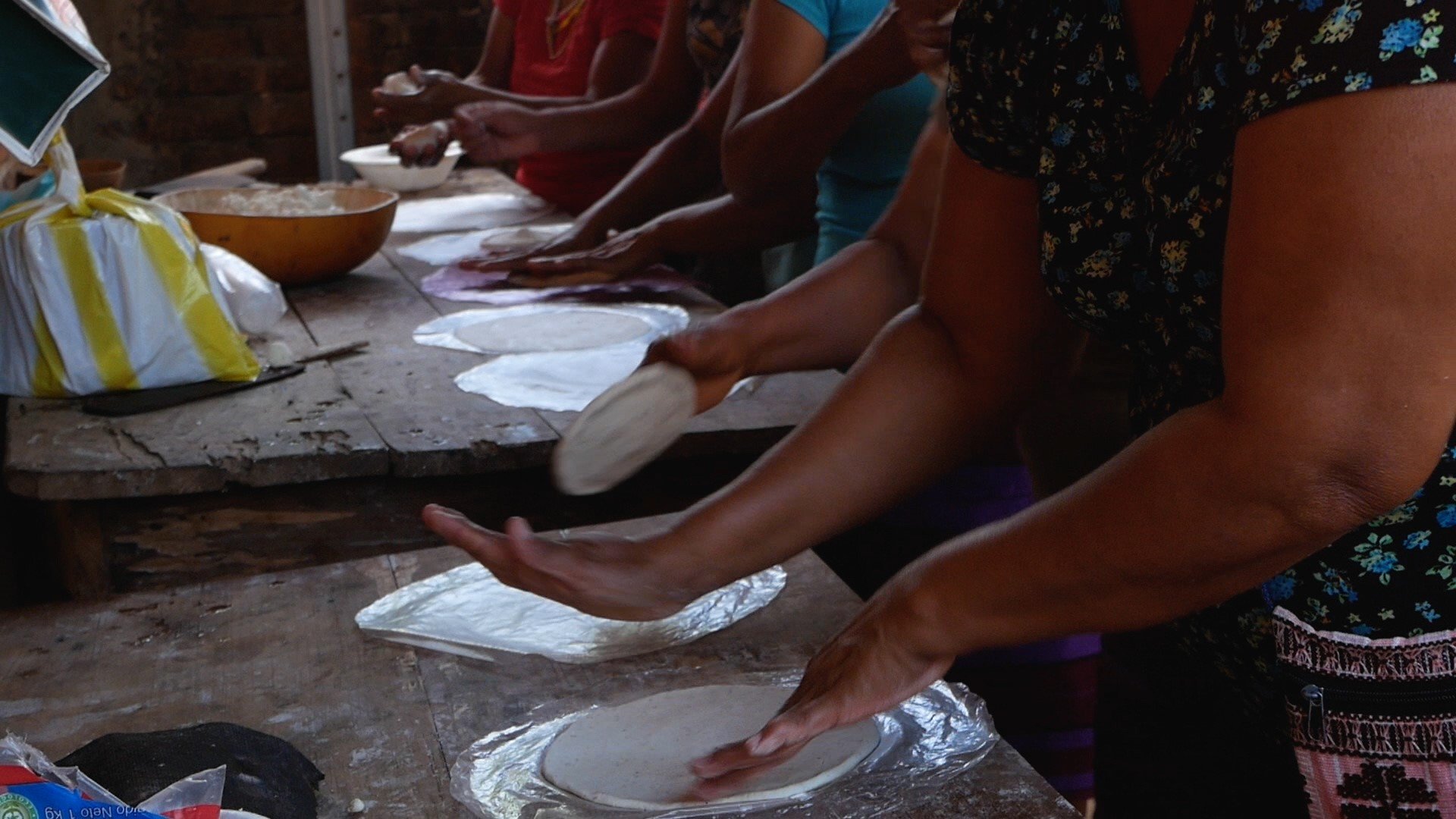
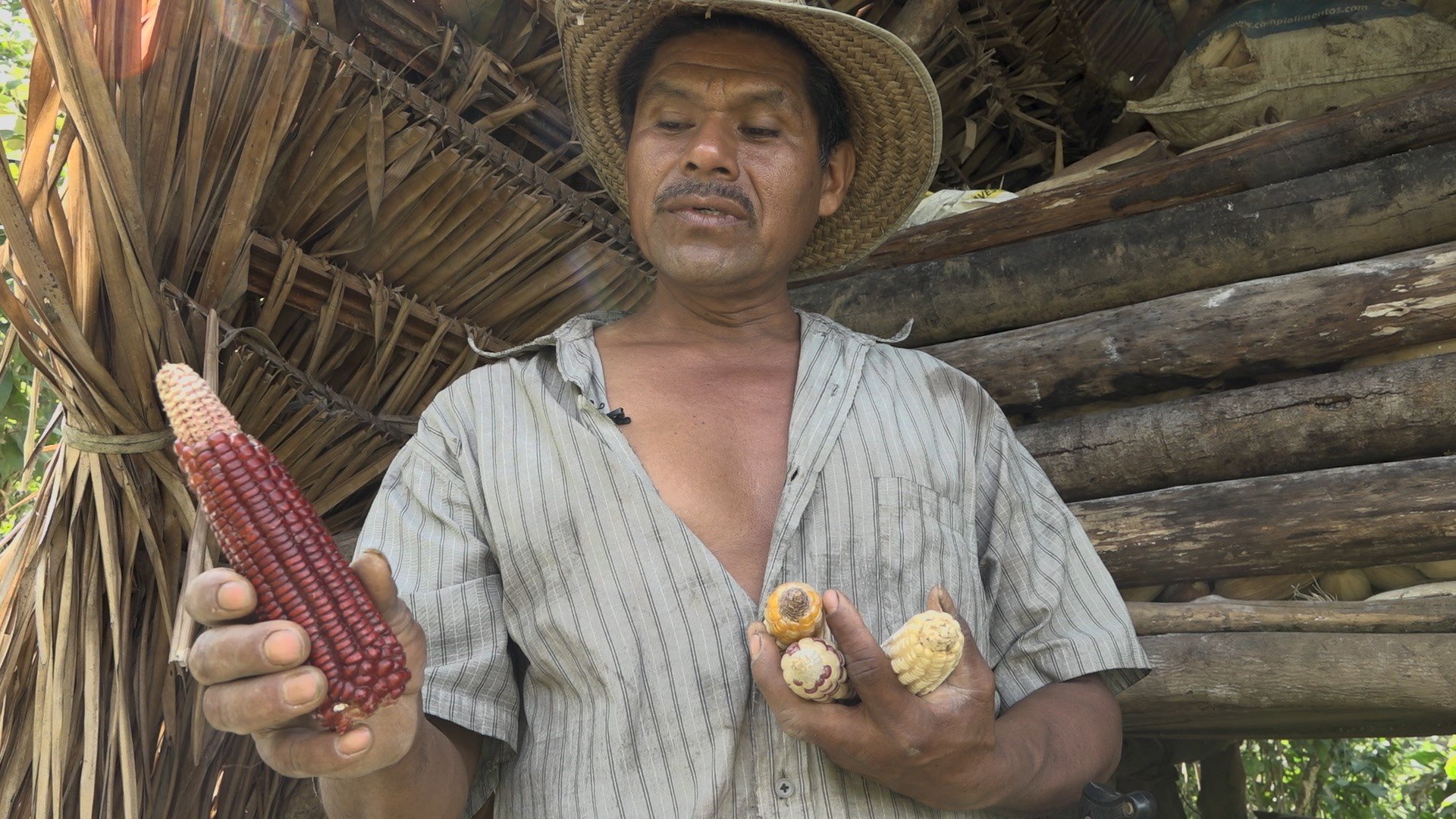
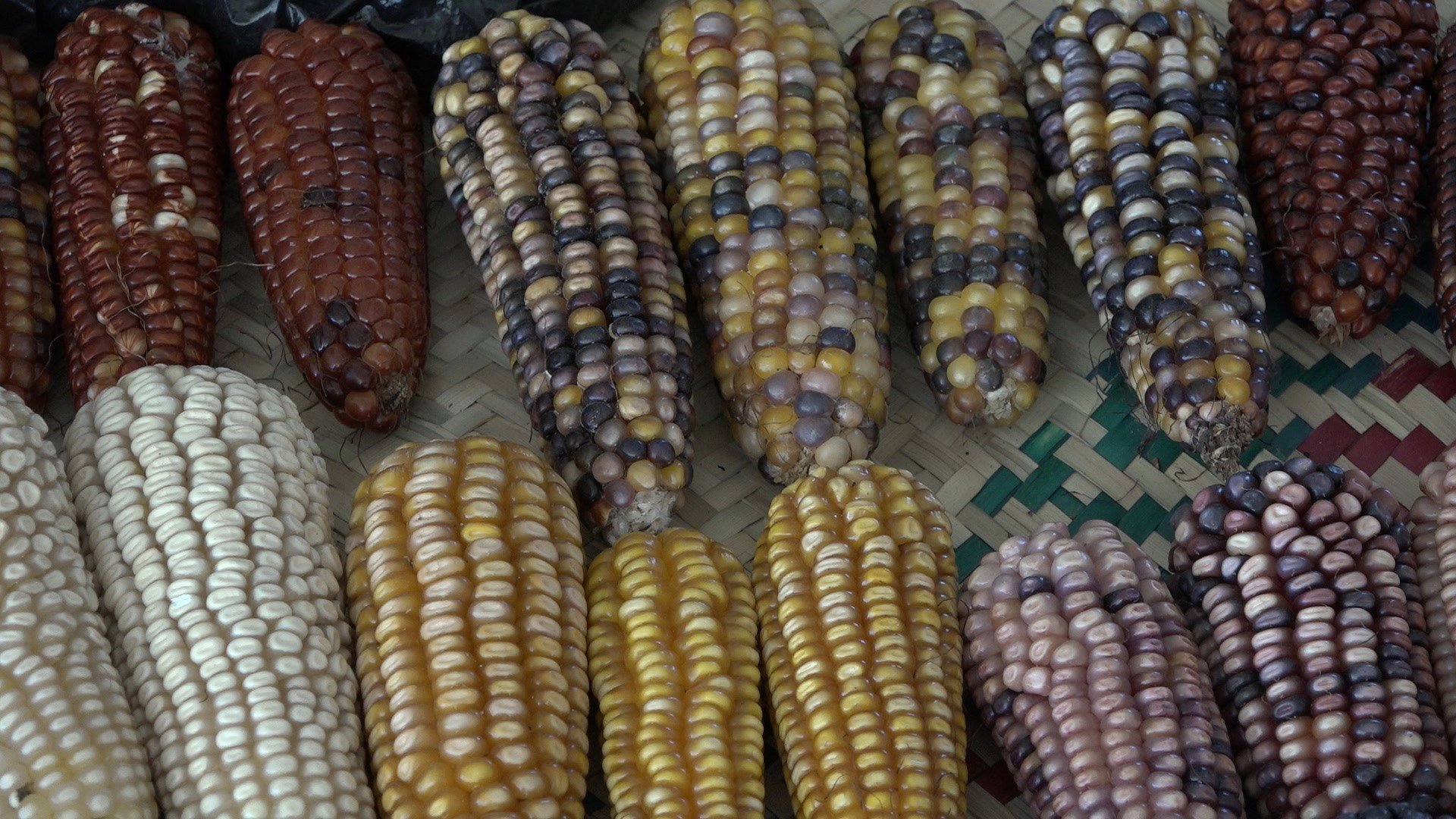
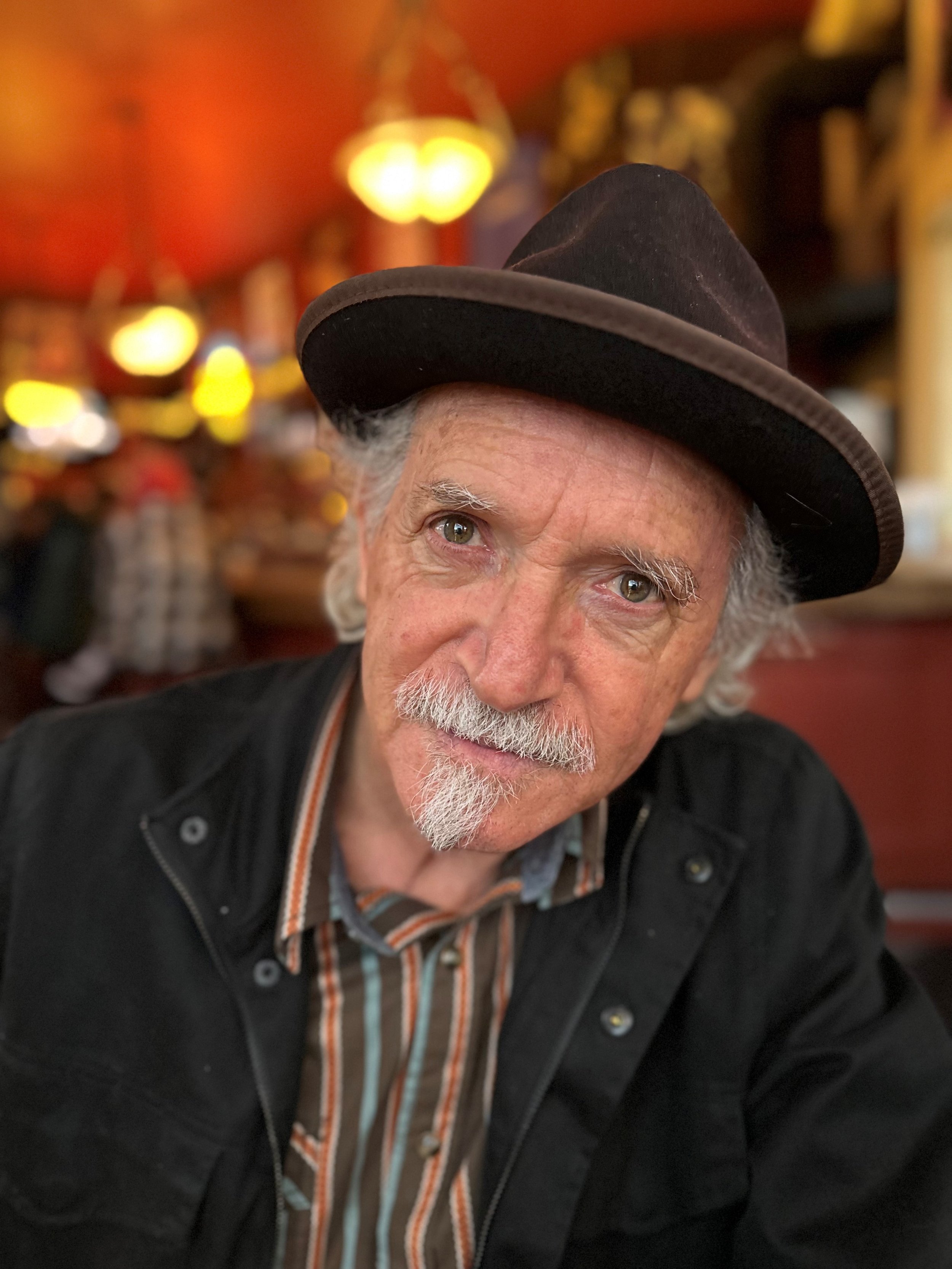
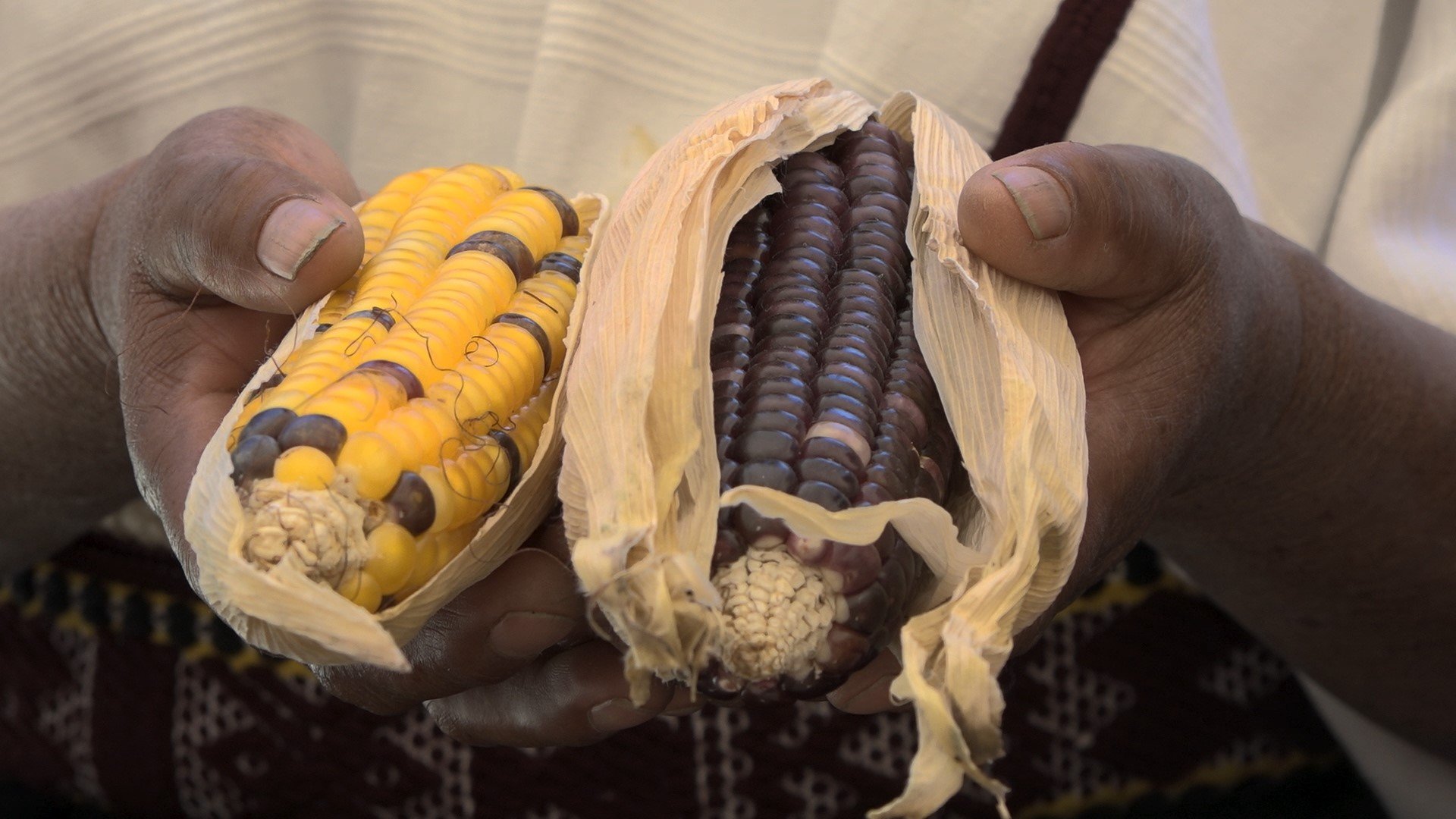
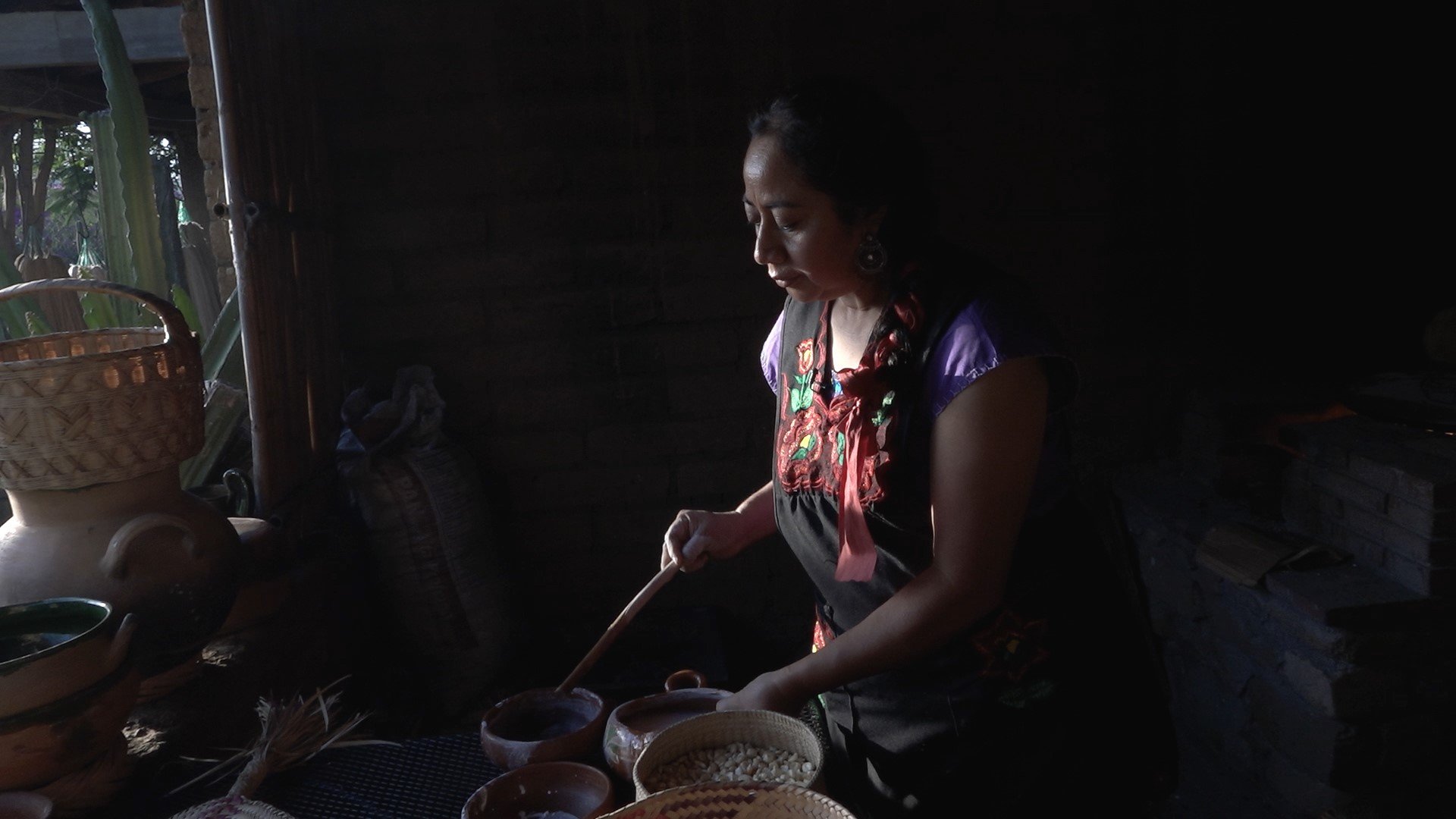
Join us for a panel discussion with the producers and director of “Keepers of the Corn A Film by Gustavo Vázquez” produced by Jonathan Barbieri & Yira Vallejo.
For thousands of years, native farmers in the Mexican state of Oaxaca have kept alive a system of seed exchanges that, like oral almanacs, have brought the collective knowledge of traditional milpa1 farming methods into the Twenty-first Century.
One such seed exchange takes place in the town of Ejido Unión Zapata, in whose province lie the caves of Guila Naquitz. Today the caves are catalogued as a World Cultural Heritage Center by UNESCO, whose website describes them as containing, “the earliest known evidence of domesticated plants in the continent, while corn cob fragments from the same cave are said to be the earliest documented evidence for the domestication of maize. “
The seed exchange at Ejido Unión Zapata is host to over 500 indigenous farmers and their families who come from every region in Oaxaca. The system predates the arrival of the Europeans and to this day, no money changes hands. The only currency tendered here is genetic diversity and good advice. It was at Ejido Unión Zapata that the idea for our documentary, Los Guardianes del Maíz, The Keepers of Corn, 2020 was born.
To fully understand the importance of preserving the over sixty varieties of native corn in Mexico and the genetic diversity of the hundreds of eco-system-specific strains cultivated in Oaxaca, we needed to trace some of the farmers back to their fields and communities in the far flung Mixteca, Zapotec and Chinantla regions of the state.
It is hoped that this work serves as a testament to both the fragility and tenaciousness of traditional farming cultures, whose way of life is challenged daily by the incursion of fast-food, soft drinks and a growing ecological catastrophe caused by the increasing use of herbicides. We are honored and grateful to have been invited into these communities and hope that our work provokes a dialog between them and others like them, even in other countries.
We learned along the way that coalitions between budget-strapped, yet dedicated, government scientists, activists, chefs and the farmers themselves actually do happen and that together they can work in defense of the great genetic diversity and cultural treasure that native corn represents.
-Jonathan Barbieri, Executive Producer.
BIOGRAPHIES:
Gustavo Vázquez Orozco (Jalisco, 1954) studied film at the San Francisco Art Institute and is an independent filmmaking with an extensive repertoire. He has directed more than 30 productions, including documentaries, video-installations and experimental narrative films. He has received various international awards, including a Rockefeller Grant and a Eureka Grant for Visual Art from the Fleishhacker Foundation. Gustavo Vázquez's interest focuses on intercultural studies and issues of identity and the US-Mexican border, which have led him to build a film career centered on a pluralistic, critical aesthetic. He has directed films such as “Que viva la lucha”, which portrays the marginal sphere of professional wrestling within the framework of the peripheral culture of Tijuana; He has also produced various short films and documentaries, as well as segments of series such as “Visiones: Latino Art & Culture”. Part of his experimental work has been exhibited in cultural spaces such as the Smithsonian Institute (Washington, D.C.), the De Young Museum (San Francisco, CA) and the St. Louis Science Center (St. Louis MO). Gustavo Vázquez Orozco is currently a professor in the UC Department of Cinema and Digital Media Santa Cruz.
Yira Vallejo spent ten years working in the wine and spirits industry in New York City. In 2014 she returned to Mexico and began working for a mezcal brand in Oaxaca developing community projects in the Zapotec village where production for the brand was based. She has served on the organizing committee of the annual Feria de la Agrobiodiversidad, a native seed exchange that brings together over 450 campesinos from indigenous communities across the state. Vallejo’s work as a liaison between the feria, traditional Oaxacan cooks and local chefs and focuses on raising public awareness about the crucial role of small, local farmers in protecting Oaxaca’s extraordinary biodiversity.
Jonathan Barbieri (Washington D.C. 1955) is a fine arts painter who has lived in the Mexican state of Oaxaca for 35 years, 27 of which were spent in small towns and villages in the Oaxacan countryside. His artwork is in public and private collections in the US, Europe and Mexico, including the fine Arts Museums of San Francisco, the Di Rosa Preserve in Napa Valley and the Instituto de las Culturas de Oaxaca. He started the iconic mezcal brand, Pierde Almas in 2007 and expanded its portfolio in 2015 to include the first ancestral corn whiskey from Oaxaca. The pursuit of firsthand knowledge about native corn in its many ecosystem-specific varieties brought him to towns and villages across Oaxaca’s Valles Centrales and to the Isthmus of Tehuantepec, la Chinantla, la Sierra Norte, la Costa, Costa Chica and la Mixteca Baja. It was in these communities that he came to appreciate the deep, historical relationship that each local polity has with the particular corn of the region. Vasquez, Barbieri and Vallejo began filming the documentary, Los Guardianes del Maíz, The Keepers of Corn, in 2017. The film showcases the efforts of indigenous farmers in Oaxaca to conserve native maize in the face of an uncertain future.
Solimar Salas is the Vice President of Content, Innovation & Outreach at MOLAA. She has 20+ years of experience in the museum field and has collaborated on 100+ exhibitions in different aspects including bilingual content development, interpretive programming, application of technology to enhance the visitor experience and interpretive goals, programming, publication program, and web content management. Collaborated in creating MOLAA en Casa which extends the museum’s education programming online emphasizing online tours, making it available for families, educators, and the general public at home. She oversaw the successful creation of a bilingual online database for Puerto Rican artists at the Museo de Arte de Puerto Rico, among other public outreach projects.
Steven Andrew Garcia is originally from Tampa, Florida. He is a graduate of Los Angeles Film School, and has produced documentary content for Vice Media, Huck Magazine, Taschen, and CubaOne Foundation. Outside of MOLAA, Steven enjoys photography, skateboarding, motorcycles, and music.
Xochitl Rios-Ellis has a B.A. in Theater Arts from UC Santa Cruz where she focused on directing, acting, and writing Chicanx Theater. While at UC Santa Cruz, she also studied Cultural Anthropology, Feminist Theory, and Film with an emphasis on Horror and Gender. When she is not working at MOLAA, she makes short films that focus on the fantasy and horror of the feminine experience.

